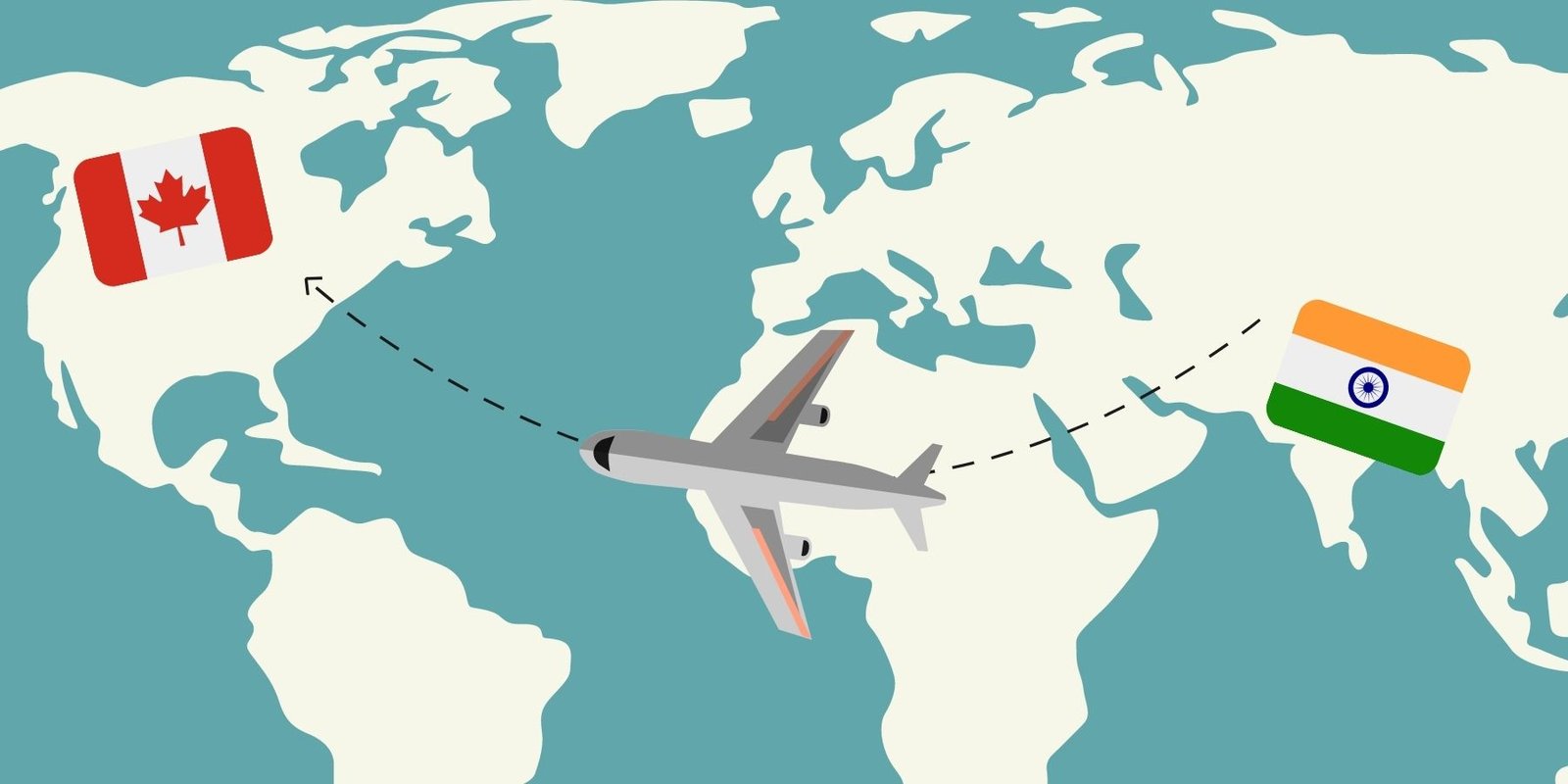What is the Essence of Yoga? There are myths that Yoga is for Hindus alone. That is not true. India is the land of Yogis, Maharshis, Saints, Spiritual Gurus who spent their lives in seclusion in the Himalayan Caves for time immemorial. This Yogic science was made easy to understand and adaptable by great sages in the past. This knowledge was passed on from one sage to his disciple since time immemorable. Some sages did extensive work to get this knowledge to general public. The purpose was to let common man know himself, his potential and take him to his path of Spiritual growth. The concepts were made easy to be understandable.

However, if one takes a journey of Self-Realization and understand the Essence of Yoga, he needs an able Guru to guide him on this path. There are many things that every human being on this earth, no matter which religion he belongs to, can practice for bringing peace and calm in their body and mind.

In today’s world when there is no peace around the world, our message is to practice Yoga to bring peace and calmness in one’s life. It is said a Yogi can create a heaven in nowhere. If more and more people on this earth, irrespective of their religions practice Yoga, you will find different solutions to many problems brewing around us. The need is to first control ourselves, follow the practice of Yoga and once the mind is calm, find the solutions to different problems.

Through a series of articles, we will try to explain different concepts, teachings, how anyone, irrespective of the religion, beliefs can practice and adapt Yoga in his life and change the things as they are.

Indian Prime Minster Narendra Modi’s Contribution to the World Peace – International Yoga Day
The International Day of Yoga has been celebrated annually on 21 June since 2015, following its inception in the United Nations General Assembly in 2014. Yoga is a physical, mental and spiritual practice which originated in India. The Indian Prime Minister, Narendra Modi, in his UN address suggested the date of 21 June, as it is the longest day of the year in the Northern Hemisphere and shares a special significance in many parts of the world.

35,985 people, including Narendra Modi and dignitaries from 84 nations, performed 21 asanas (yoga postures) for 35 minutes at Rajpath in New Delhi, becoming the largest yoga class ever held, and with the largest number—84—of participating nationalities. and for the largest number of participating nationalities (84 nations). Similar days have been held in cities in India and around the world each year since then.

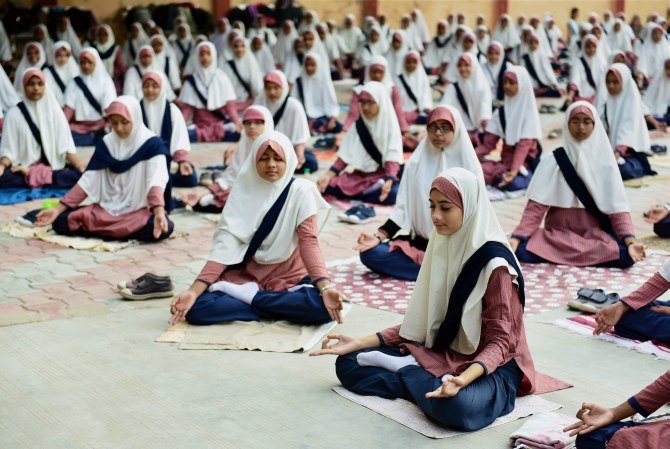

PM Modi addressed the nation on the International Day of Yoga and said that yoga is above all and unites people irrespective of religion, caste, creed and society.

PM Modi then appealed to the people to take yoga to all sections of society.
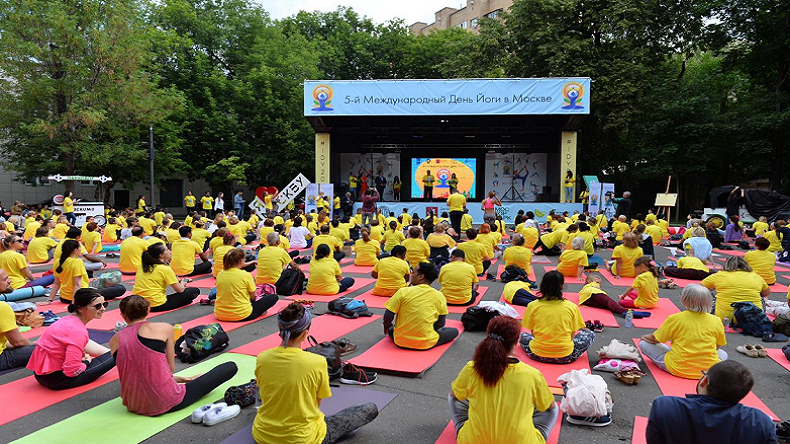
“We should make efforts to take yoga from cities to villages, tribal areas. Yoga is above region, above faith, above everything,” Modi told the gathering.

Urging people to make yoga a part of daily life, Modi said, “Peace and harmony are related to yoga. People across the world must practice it.”


In his message on the passage of the resolution, UN Secretary General Ban Ki-moon said in declaring June 21 the International Day of Yoga, the General Assembly has brought attention to the holistic benefits of the ancient practice on health and well-being in the modern world.

Ban said: “Yoga can contribute to resilience against non-communicable diseases and can bring communities together in an inclusive manner that generates respect. Yoga is a sport that can contribute to development and peace and can even help people in emergency situations to find relief from stress.”

UNGA President Sam Kutesa congratulated Modi for the initiative, saying the adoption of the resolution with overwhelming support demonstrates how both the tangible and unseen benefits of Yoga appeal to people around the world.

“Yoga brings thought and action together in harmony, while demonstrating a holistic approach to health and well-being,” he said.

Yoga: A Journey Beyond Asanas
Having travelled the world and interacted with number of people who are aware of Yoga, but only as a mere physical activity, it saddened me immensely that the ancient Philosophy was forgotten or completely sidelined. Yoga is way beyond just Asanas.
Yoga, if followed diligently, becomes a journey, where one can use the intellect to achieve freedom from the burdens of life.
The great sage, Patanjali was the Father and Architect of the Yogasutras. He gave a philosophical structure to Yoga wisdom. Having studied the Yogasutras, one can realize why it is so important to gain basic understanding.
Yoga brings the body, mind and senses under control and enables us to live in harmony with ourselves and the people around us. The sutras are an in-depth study of mind and its workings.
This is my endeavor to talk about Essence of Yoga and tell the world that there is more to this science than mere physical exercise. True, yoga has served many in many different ways. So, which is true?
Is yoga a mere physical exercise? Or is it a pathway leading to Union with Paramatma (God Realization)?
Essence of Yoga
It is a journey of the Jivaatma (Soul) to meet the Paramatma (God).
‘Yuj’ means to Yoke, tied to the thread connected to the Paramatma and follow the thread that leads to the Cosmic Consciousness!
Yoga was compiled and assimilated by the great sage Patanjali. In the world of Yoga, He is considered the Father and architect.
The Yogasutras of Patanjali is a comprehensive study of wellbeing of all faculties: physical, mental, emotional and spiritual.
While yoga is popularly equated to Hatha Yoga, a well-known practice of postures and breathing techniques, this form is only a part of the overall discipline called Yoga.
Yoga is a system, not a belief, of techniques and guidance which will lead to better and enriched living. Many sages have come up with ways and means to achieve freedom from the burdens of life. But the two main texts are The Bhagvad Gita and The Yogasutras of Patanjali.
Both these texts explain the nature of and obstacles to attaining fulfillment, as well as present techniques to achieve the same.
As in every field, some aspects in yoga are too subtle to be learned from the texts and books. These books are just guidelines leading to the path!
In my opinion, Yoga is a journey that has to be experienced. In the age-old tradition of Gurukul, this experience was passed on by the Guru to his disciples by helping them travel inward and discovering their inner truth through personal experiences.
This journey is very personal and may vary from one practitioner to another. But whatever be the approach all ways lead to the same destination. The structure presented in these texts, if followed, ease the way into the journey and help remove obstacles from the path.
Namaste and Anjali Mudra
Let’s talk a little about Namaste and Anjali Mudra.
Namaste (Namaskara) is a very popular way of greeting people not only in Bharat (India) but in Nepal, Bangladesh, Thailand, and some parts of South East Asia.
Derived from Sanskrit, Namaste means ‘I Bow Down To You’. Namaste has a Spiritual connotation too. We believe that the Divine and the Soul is the same in everybody. So by saying Namaste – ‘Namah’ meaning ‘bow down’ and ‘te’ meaning to you. ‘We bow down to the divine in you.’
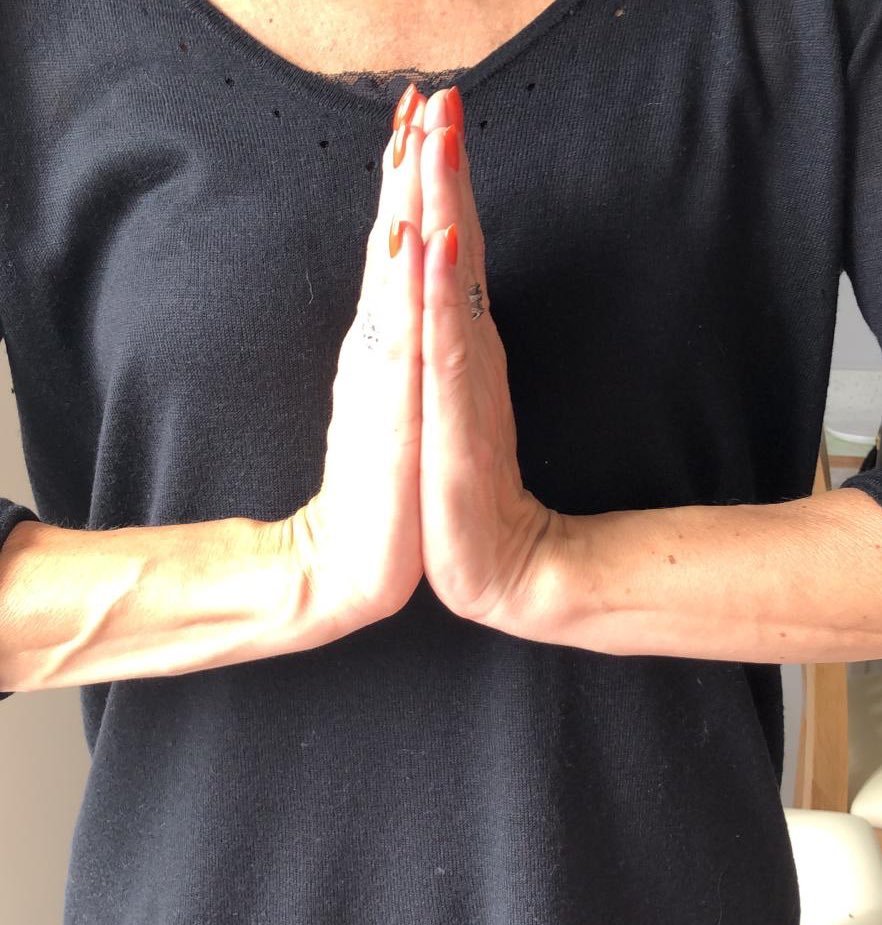
One of the common translations of Namaste is. ‘The divine light in me bows down to the divine light within you’. Sanskrit is truly a magical language. There is no one word in English language to describe Namaste.
The concept can be understood and felt, but to pack the philosophy behind this greeting in one word would be difficult.
Anjali Mudra
‘Anjali’ in Sanskrit means To Offer or To Salutat. ‘Mudra’ means A Sign or A Token or A Seal.

One of my favorite explanations of Anjali Mudra was given by the great Yoga Guru, Sri T. Krishnamacharya. He said and I quote, ‘This gesture signifies the potential for an intention to progress to greatest spiritual awakening.
When done properly, the palms are not flat against each other, the knuckles at the base of the fingers are bent a little, creating a space between the palms and the fingers of both hands resembling a flower yet to open, symbolizing the opening of our hearts.
When we perform it with our hands at the center of the heart chakra, it is meant to denote balance and harmony between the left and the right sides of our body which unite at the heart center! This balance is not only physical but mental and emotional.
Namaste honors the goodness.. the inner light in others!
Anjali Mudra honors the Sat-Guru… the Divine Light within!!!
Namaste!
Invocation to the Great Saint
I want to begin with the Invocation to the Great Saint as is the tradition at all institutions run by the disciples of Sri T. Krishnamacharya. I have also written the meaning of the prayer.
As one entered the institute where I studied Yoga and Yoga Therapy, one could hear the chanting of this prayer at the beginning of each class. This Prayer set the ambiance of piety and reverence. Even today, I begin my sessions with the Prayer
Yogena Chittasya Padena Vaacham
Malam Shareerasya Cha Vaidya Kena
Yopaa Karottam Pravaram Muninaam
Patanjalim Pranjalirana Tosmi!!
Abaahu Purushaakaram
Shankhacakraasidhaarinam
Sahasrashirisam Shvetam
Pranamaami Patanjali
Srimate Ananataya Nagarajaya Namo Namath!!!
I offer my prayers to the revered Sage Patanjali
Who gave us Yoga for the serenity of mind,
Grammar for the purity of speech,
And a medical system (Ayurveda) to rid the body of disease.
I prostrate to Sage Patanjali,
He, who is human in form up to the shoulders
He, who has a head of white thousand hooded snake,
And carries a disc, a conch, and a sword.
Pranams to Patanjali, who is full of knowledge, who is eternal and the king of
snakes!!!
Patanjali
The life of Patanjali is an enigma to historians and not much is known about this great Master who epitomized Yoga.
Patanjali is said to have lived between 500 and 200 BCE.
In Indian History, there are many individuals by the name of Patanjali. However, three of them were well known; the first one being the grammarian, who wrote a commentary on Panini’s Ashtadhyayi (the Mahabhashya) and compiled the Yogasutras, the classical text on Raja Yoga.
The Mahabhashya is the perfection of the discipline of grammar.
The second person known as Patanjali wrote the Nidana-Sutras, considered indispensable for Vedic ritual literature. While the third was a well know teacher of Samkhya Philosophy.
Though some historians think all these three persons belong to different timelines, some believe that they were the same person and also attribute various medical treatise to Him.
Patanjali is said to be self-born, Swayambhu. He is considered the incarnation of Ananta, the source of all wisdom and of Shesha, the thousand headed ruler of the snake kingdom, which is known to guard the hidden treasures of the Earth.
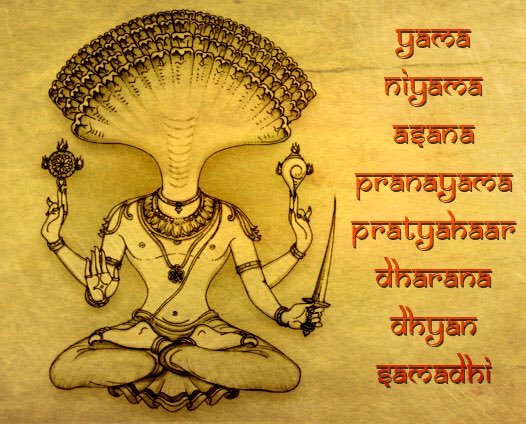
Ananta represents the seat of Lord Vishnu.
Shesha is the Lord of the serpents and the many heads represent Infinity!
According to one legend, Lord Vishnu was seated on Adishesha, watching the dance of Lord Shiva. Lord Vishnu was so enchanted by the dance that he started vibrating to the rhythm.

These vibrations were making Him heavier and He started weighing down on Adishesha. After the dance was over, Lord Vishnu’s body became lighter. Adishesha was perplexed and asked the Lord the reason for these changes.
The Lord explained the grace, beauty, rhythm and grandeur of the dance and said that was what caused vibrations in him and made him heavier! Absolutely enthralled, Adishesha expressed a desire to watch the Divine Dance.
Adishesha’s wish would be fulfilled only when he took an avatar on Earth. Since He was a Swayambhu, he could decide His birth.
Adishesha, started meditating to ascertain who His mother on Earth will be.
In His meditation, He had a vision of a yogini called Gonika, who was praying for a worthy son. While praying, she filled her hands with water as an offering to the Sun God.
Adishesha chose that opportune moment to come down to Earth and drop in her hands.
When she opened her eyes, she found a tiny snake swimming in her palms. He soon took the human form. He knelt in front of her and asked her to accept him as her son. She accepted gladly and named him Patanjali.
He had fallen from the heavens (Pat) into the hands which were in obeisance (Anjali).
Patanjali was adept in Svadhyay, a study of self, which is an important aspect of spiritual journey!
Another legend is said to have happened in a temple town of Chidambaram also know as Thillai. Thillai forest and Shiva are rooted in Siddha culture. Patanjali and Vyaghrapada are considered founders of this temple.

Sage Vyaghrapada discovered Swayambhu Linga in the Thillai forest and settled there to worship. This is the Moolasthana (central place of worship) Linga in the temple.
Adishesha, as Patanjali, wandering in the forest reached the place where Vyaghrapada was worshipping and built a Linga on the East side and started worshipping for the darshan of Shiva.
Goddess Kali was the presiding deity of the forest and would not allow Shiva to enter. A dancing contest was decided between the two to decide if Shiva could enter the forest.
During the contest, his earring fell and while dancing he picked up His earring with his toe. Thus, lifting one leg high, this is called Urdhva Tandav. Kali, as a woman, could not lift Her leg that high and lost the contest.

Thus, Shiva earned the right to enter the forest.
Patanjali and Vyaghrapada witnessed this Anandha Tandava, for which they had been waiting for.
Shiva is represented as Akasha (space) in Chidambaram temple, in the idol form, Shiva is represented as Thillai Nataraja.
Patanjali is said to have attained Jeeva Samadhi through Yogic Meditation at Brahmapureeswarar Temple at Tirupattur, Tamilnadu, India.
About the Author: Anantha Ellathur (Email Address: aellathur@gmail.com) A Yoga practitioner, Educated from Singapore & India based Yoga Schools. Qualified Traditional & Classic Yoga Teacher. Deeply rooted in Ashtanga Yoga. Continue travel the world to extensively to be a voice for the true knowledge of Yoga.
Follow us at:-
Twitter Handle: @communique_news
Parler Handle: @newscommuniquecom
Subscribe our : YouTube Channel https://www.youtube.com/channel/UCnKJQ3gFsRVWpvdjnntQoAA
Like our Facebook Page https://m.facebook.com/News-Communiquecom-103788531007438/
1,139 total views




